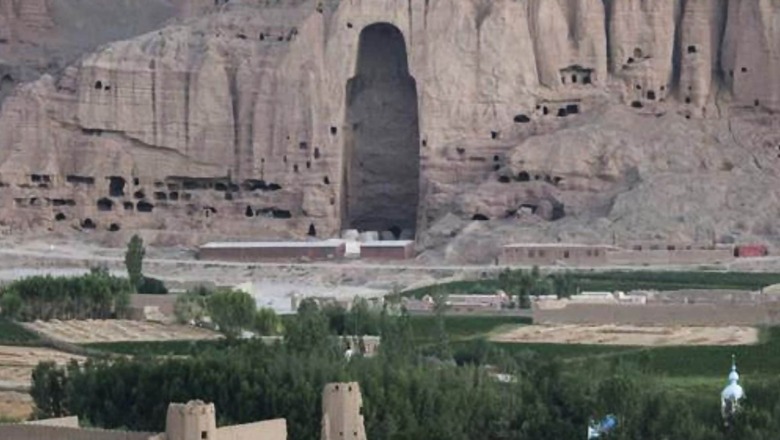
views
The UNESCO Thursday called for the preservation of Afghanistan's cultural heritage in its diversity, and taking all precautions to protect the country's historic assets from "damage and looting", amid deepening crisis in the war-torn nation since the Taliban takeover. In a statement, the UNESCO also reminded of the "deliberate destruction" of the iconic Bamiyan Buddhas, a world heritage site in Afghanistan's Bamiyan Valley, in 2001.
Amid the rapidly unfolding events, and 20 years after the deliberate destruction of the Bamiyan Buddhas, UNESCO Director-General Audrey Azoulay has called for preservation of cultural heritage of Afghanistan, the statement said. Azoulay shared the UNESCO statement and tweeted, "We are calling for the preservation of #Afganisthan cultural heritage in its diversity, in full respect of international law, and for taking all necessary precautions to spare and protect cultural heritage from damage and looting." The Taliban swept across the country this month, seizing control of almost all key towns and cities in the backdrop of withdrawal of the US forces that began on May 1.
On August 15, the capital city Kabul also fell to the Taliban even as a large number of Afghans attempted in vain to flee the war-torn nation. The insurgent forces have now sought to portray themselves as more moderate than when they had imposed a brutal rule in the late 1990s. But many Afghans remain skeptical and fear a return of the "regressive" regime.
The shocking images of the destruction of Bamiyan Buddhas have once again been triggered in public consciousness after the Taliban takeover. The UNESCO in its statement Thursday also said it is "closely following the situation on the ground and is committed to exercising all possible efforts".
"Any damage or loss of cultural heritage will only have adverse consequences on the prospects for lasting peace and humanitarian relief for the people of Afghanistan," it said. Incidentally, August 19 also marks the Independence Day of Afghanistan.
The UNESCO further underlined the need for a safe environment for the ongoing work of the country's cultural heritage professionals and artists, who play a central role in Afghanistan's national cohesion and social fabric, the statement said. "Afghanistan is home to a wide range of rich and diverse heritage, which is an integral part of Afghan history and identity, as well as of importance for humanity as a whole, that must be safeguarded," it added.
This includes sites such as the Old City of Herat, the UNESCO world heritage sites of the Minaret and the archaeological remains of Jam and the cultural landscape and archaeological remains of the Bamiyan Valley, where the UNESCO has been working for several decades, as well as museums including the National Museum in Kabul, the world body said. "It is crucial for the future of Afghanistan to safeguard and preserve these landmarks," the statement said.
The UNESCO early this year marked 20 years of the destruction of the Bamiyan Buddhas. The empty niches of the giant Buddhas in the Bamiyan Valley of Afghanistan are a perpetual reminder of our duty to protect cultural heritage, and what future generations stand to lose if we do not. Today, these niches are inscribed on the World Heritage List," it had said.
The tragic destruction of the Buddhas of Bamiyan in March 2001, which was broadcast across the globe, led to a global recognition of the need to protect cultural heritage at risk," the UNESCO had said.
Read all the Latest News, Breaking News and Assembly Elections Live Updates here.


















Comments
0 comment